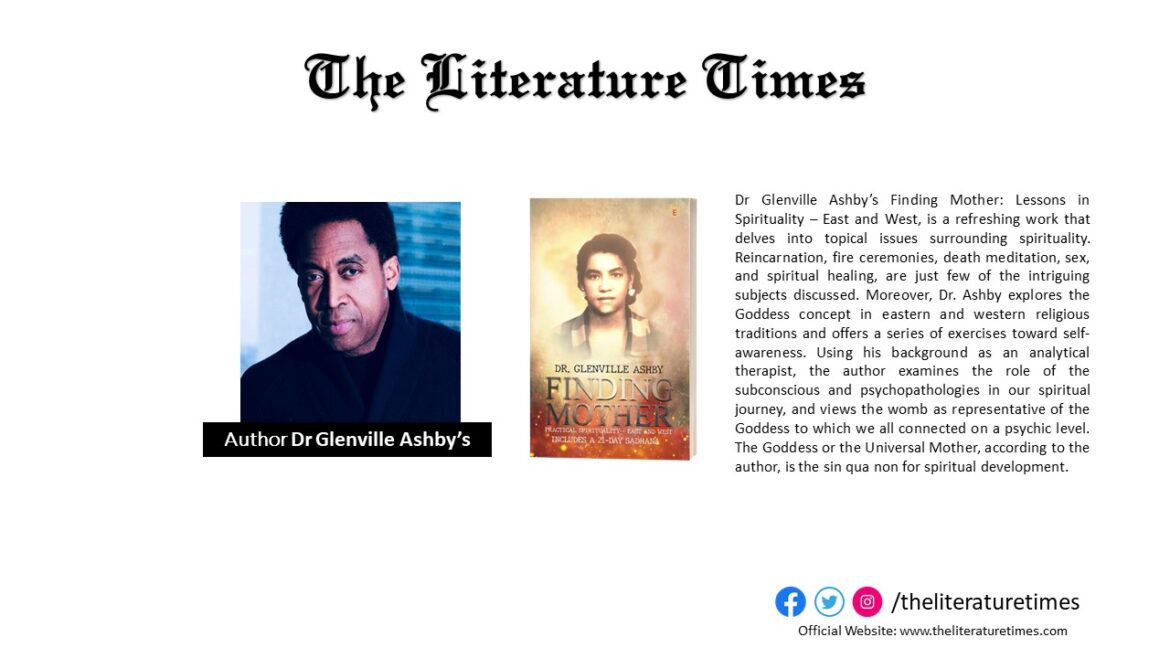Dr Glenville Ashby’s Finding Mother: Lessons in Spirituality – East and West, is a refreshing work that delves into topical issues surrounding spirituality. Reincarnation, fire ceremonies, death meditation, sex, and spiritual healing, are just few of the intriguing subjects discussed. Moreover, Dr. Ashby explores the Goddess concept in eastern and western religious traditions and offers a series of exercises toward self-awareness. Using his background as an analytical therapist, the author examines the role of the subconscious and psychopathologies in our spiritual journey, and views the womb as representative of the Goddess to which we all connected on a psychic level. The Goddess or the Universal Mother, according to the author, is the sin qua non for spiritual development. The author, given the name, Sri Gyananda by his guru, recaptures his childhood years as a devout Roman Catholic and the ineffaceable bond his mother shared with the Virgin Mary, whom he compares to the Mahavidyas (The Wisdom Goddesses). He draws on his comprehensive spiritual training emphasizing introspection and self-knowledge. He cautions against seeking siddhis (spiritual powers) and self-serving gurus who usurp the individuality and will of their sadhaks (students). Finding Mother closes with the cursory look at St Ignatius of Loyola’s Spiritual Exercises, and two in-depth sadhanas, one for Bhuvaneshwari, and the other for 4 goddesses: Saraswati, Lakshmi, Kali and Chamunda. If these are practiced in earnest, Finding Mother offers enlightenment, if not spiritual liberation.
The Literature Times: Hello Dr. Glenville Ashby, Congratulations on the book. We could like to know more about you!
Dr. Glenville Ashby: I was born in Trinidad and have been living in the US for three decades. I am a psychotherapist and author. I have more than a theoretical interest in spirituality. Knowledge is gained through practice.
The Literature Times: What was that one particular thing that made you write this book?
Dr. Glenville Ashby: It was written with my mother in mind. I lost her at a young age but learned so much about faith and devotion from her. I speak of her in hagiographic terms, as having a nimbus around her. She was that special. The centrality of the book is the power of the divine feminine. In a society that is overarching in patriarchy, Finding Mother addresses this imbalance especially in the sphere of religion and spirituality.
The Literature Times: When did your spiritual journey start? And what inspired you:
Dr. Glenville Ashby: It pretty much began when I was aware of my surroundings. I reflect so much on the religiosity that characterized our home. We were devout Roman Catholics, Marians, I would say. The Hail Mary prayer was the foundation of our daily devotions. I remember kneeling for up to an hour, praying fervently for the well-being of our household, for the afflicted and for those that had passed away. As a family unit we prayed on Fridays and Sundays but everyone was expected to pray daily. I recall that after family prayers there was a tangible tranquility throughout the house, a silence that spoke to the our connection to a power greater than ourselves.
The Literature Times: How important I is spirituality in one’s life?
Dr. Glenville Ashby: We are essentially spirits having a human experience. Somewhere along the way we are derailed by maya, by the illusions and the allure of materialism. Regrettably, it takes a trauma or some tragic occurrence for us to realize the transitory nature of life. That said, the diversions of life do have their place and function. It is left to us to discern what is immutable and what is fleeting.
The Literature Times: Before understanding the concepts of spiritualitydid you read or listen to anything about spirituality?
Dr. Glenville Ashby: I revere my guru and heed his teachings and counsel. But I remain a voracious reader of everything spiritual. This is essential in any form of pedagogy. I like to see myself as an effective teacher capable of resolving the most pressing issues besetting us.
The Literature Times: How important is taking the spiritual path in students?
Dr. Glenville Ashby: The student or sadhak takes up the spiritual mantle because the soul demands it. Teachers like myself are merely guides.
The Literature Times: As quoted in the book the importance of sadhana, how can one imbibe it without a Guru or a spiritual person?s
Dr. Glenville Ashby: Blessed are those who are guided by an erudite and experienced guru. The spiritual journey can be tortuous. There’s a psychological component seldom discussed in spirituality. Mental debris must be removed and this can only be done with an adept teacher. However, the ultimate goal is individuation, the ability to blossom without the approval of authority. The guru must eventually let go and the student, in-turn, must assume the role of guru, master of self.
The Literature Times: Are there any plans of including your book into the college or the university syllabus?s
Dr. Glenville Ashby: Finding Mother is not composed as a textbook so I don’t envisage its becoming part of any academic requirement.
The Literature Times: What is your advice to those people who just started their spiritual journey?
Dr. Glenville Ashby: I would advise the aspirant to read and compare scriptures and not be constricted by culture and tradition. Spirituality transcends ethnic boundaries. The aspirant must also be cautious in seeking a guru. As I detailed in Finding Mother, the ubiquity of the flawed guru is worrisome.
The Literature Times: Your message to people who plan to seek enlightenment through spirituality.
Dr. Glenville Ashby: Patience, humility, gratitude, forgiveness and service. These are indispensable qualities of the seeker. Self-sacrifice and the judicious use of time are also important. Spirituality is a ceaseless study that spans many incarnations. There are no short cuts, time saving methods or entitlements, only consistent experiential pursuit of knowledge.
